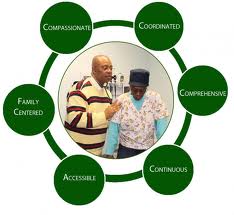Of the many requests President Obama will be making of Congress this year, one will be for more funding to combat the ongoing problem of Hospital Acquired Infections (HAIs).
Of the many requests President Obama will be making of Congress this year, one will be for more funding to combat the ongoing problem of Hospital Acquired Infections (HAIs).
1 in 25 Inpatients Will Contract a HAI
Nosocomial infections may infect as many as 1 out of every 25 hospitalized patients, according to CDC data. That’s approximately 1.7 million patients annually. Hearing these figures you might be wondering if the protocols currently in place are ineffective and in need of review. The problem isn’t with the protocols, but rather, compliance. When healthcare providers and facilities are lax in adherence to the protocols put in place, HAIs proliferate.
What Defines Hospital Acquired Infections?
As a refresher, Hospital Acquired Infections are conditions or infections that were not present on admission. Once a patient is admitted to the hospital, their normal bacterial flora is replaced by whatever is in their surroundings. Ideally, they would be in a clean, sterile environment. Since they are likely to be especially susceptible to infection due to recovering from an illness or surgical procedure, any bacteria present in that environment poses a threat.
Like any infection, HAIs can be caused by bacteria, viruses or fungi. Certain patient groups, like those who have just had joint replacements, are a particularly vulnerable population. If a patient is predisposed to infection, the best way to fight back against HAIs — other than prevention — is surveillance.
After the Ebola outbreak last fall, hospitals worldwide became rightfully preoccupied with infection prevention measures, but it’s too early in the year to know if it will have a positive impact on Hospital Acquired Infections.
HAI Protocols Aren’t The Problem, Compliance Is.
The truth about HAIs is that, more often than not, they’re preventable with careful attention to hand washing and disinfection measures. One of the most common HAIs, Methicillin-resistant Staphylococcus aureus (MRSA) can be spread by asymptomatic carriers of the bacteria. Combine that with immunosuppressed patients being treated in the hospital, plus poor infection prevention measures and you’ve got the perfect breeding ground for the spread of HAIs. Now throw in antibiotic resistance, another growing problem in U.S. hospitals, and it’s easy to see why even though the numbers are dwindling, it’s still a significant problem.
The Economic Impact of HAI
As if HAIs weren’t bad enough on their own, the economic impact they have on a hospital are intense as well. If a patient contracts an infection while they’re hospitalized and are discharged, they are likely to end up back in the hospital. We already know what a detriment readmissions are to reimbursement, but when you combine that loss with the penalties associated with HAIs, there’s a significant amount of revenue to be lost if these issues are curbed.
Federal Funding: Will We Get It?
The Joint Commission knows this and they’re already working hard to establish review protocols and are cracking down on hospital’s whose numbers are getting out of control. President Obama’s request of Congress this year would double the amount of funding the CDC would receive towards the prevention of Hospital Acquired Infections.
The micro-culprits for HAIs are sometimes found in unexpected places: one study found that a doctor’s tie was one of the most common methods of bacterial spread in an emergency department. It’s a lot simpler to ask doctors to dress down than it is to pay millions per year for HAIs.
It’s unclear whether President Obama’s request will be met by Congress, but regardless of whether or not the funding comes from the federal government, hospitals will need to find the money somewhere to continue investing in HAI prevention, especially as it becomes more inextricably linked with reimbursement as we march forward this year.








